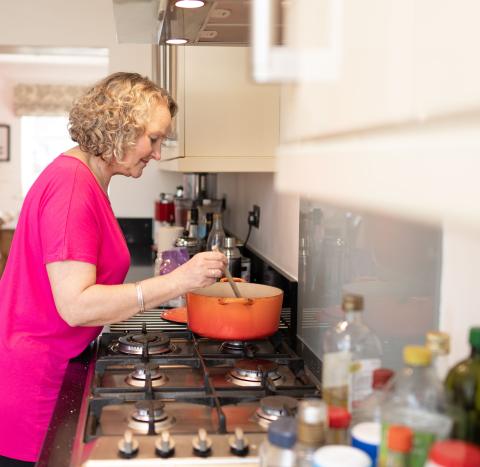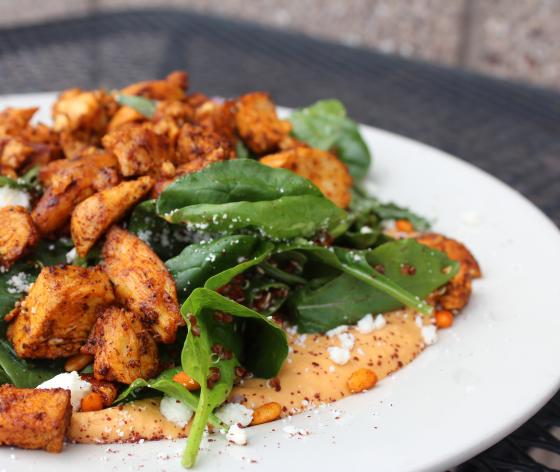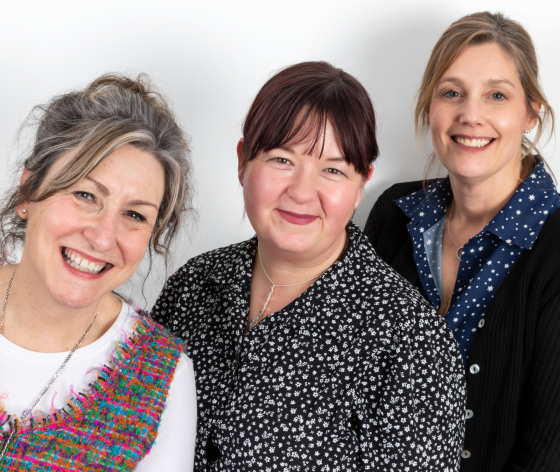When you've been diagnosed with ovarian cancer and you're going through treatment, it's important for you to be as well-nourished as possible. This means eating foods that are made up of things to help your body to maintain and repair itself and to give you the energy you need. Depending on your particular situation this may mean eating more or less of specific foods or food groups (such as carbohydrates or proteins).
Common questions
Below are answers to common questions you may have about ovarian cancer and diet.
- Should I avoid eating sugar?
-
Some people think that not eating sugar is a good idea as it means that cancer cells don’t get the energy they need to grow. But there’s no strong evidence to suggest that following a sugar-free diet has any impact on how cancer grows or behaves. Cutting out sugar altogether isn't a good idea because our bodies need sugar (glucose) to work. If you don’t eat enough sugar then your cells will start making glucose from protein and fat as a last resort. This can mean that you lose weight which can make it harder to cope with treatment and take longer for you to get well.
Lots of foods that are good for us (like fruit, cereal and wholemeal biscuits and bread) contain natural sugar. Eating these things is a good way for us to get energy from sugar. But some foods and drinks (like full-fat fizzy drinks, sweets and cakes) have lots of sugar added to them – like you would add sugar to tea and coffee to make it taste sweeter. This added sugar is less good for you than natural sugar so it’s best to eat and drink small amounts of these.
Cancer Research UK have more information about cancer and sugar.
- Should I cut out dairy products?
-
Some people think that dairy products affect the growth and development of ovarian cancer and that it’s better not to eat them at all. But if you normally eat dairy products there’s no reason that an ovarian cancer diagnosis should change this. Unless you have been specifically told not to eat things like cheese or milk (or other dairy products) these can be a good source of calcium and protein which are part of a balanced diet.
Some people are worried about hormones being used to help produce more milk and choose to avoid dairy because of this. But this isn’t allowed in the UK or the rest of Europe. There’s no clear evidence for a link between ovarian cancer and dairy products. So there’s no reason to avoid these foods for reasons related to your diagnosis.
- Should I avoid red meat?
-
People with a cancer diagnosis often report that red meat tastes very different during and after their treatment. Many people choose to avoid red meat as a result of this. If this is a decision that you make (or if you choose to avoid red meat for any other reason) then it’s important to replace it with other excellent sources of protein. Other sources include chicken, turkey, fish, eggs, cheese, beans, pulses, soya or Quorn®.
Red meat also has a high iron content which is important for keeping your red blood cells working well. Red blood cells move oxygen around your body so if you don’t get enough iron this function can be slowed down and make you feel very tired. Chemotherapy can also slow this down so it’s important to make sure you have enough other sources of iron in your diet if you choose not to eat red meat. Foods that are high in iron include eggs, sesame seeds, nuts (cashews, almonds and hazelnuts) and green leafy vegetables such as spinach and curly kale.
- Should I be taking turmeric?
-
You may think that taking turmeric is helpful because it contains something called curcumin. Curcumin has been shown to have some anti-cancer effects when tested in laboratory experiments. But there’s no clear evidence to suggest that turmeric is helpful in stopping or treating cancer in humans.
It’s perfectly fine to use turmeric in cooking (it’s a main ingredient of curry powder). But you should speak to your medical team if you want to use it for more medical reasons.
- Should I follow a vegan diet?
-
You may choose to follow a vegan diet. The evidence to support whether a vegan diet improves cancer outcomes is very limited. The studies are mainly done in animals and often use the term a plant-based diet which does not necessarily mean a vegan diet. But there are lots of other reasons (not related to health) why people choose to follow a vegan diet.
If you’re choosing to follow a vegan diet, it’s important that you ask to speak to a dietitian. This is to make sure that your diet is balanced and more importantly has enough protein and energy.
- Would taking a vitamin and mineral supplement help?
-
You may be worried that you’re not getting enough vitamins and minerals, particularly if you’re not able to eat well. There are some simple ways to increase your intake of vitamins and these that doesn’t involve taking a supplement:
-
Branded cereals often have added vitamins and minerals so eating this kind of food (softened with warm milk) can be helpful.
-
Fruit juice and squash often contain extra vitamins and smoothies are a great way of getting more portions of fruit and vegetables. You could try drinking a glass of one of these drinks every day.
-
Frozen fruit and vegetables can be easier to store and use than fresh ones and contain good amounts of vitamins and minerals.
If you’re struggling to eat a range of foods that contain lots of nutrients then a supplement may be helpful for a short while. You should speak to your clinical nurse specialist (CNS) or a dietitian, trained in diet and cancer, about what might be right for you. That’s because some supplements can interact with cancer treatments and taking some supplements for a long period of time may be harmful.
-
- Can I eat grapefruit?
-
There’s some evidence to suggest grapefruit can affect how medicines work in our bodies. Grapefruit contains an ingredient that can affect how some people absorb (take in) certain drugs through their digestive system (the system we use to break down food). This means that the digestion of some medicines may be changed.
It’s always best to check with your clinical team whether you’re taking any drugs which will have this interaction with grapefruit. There’s no strong evidence to suggest that eating grapefruit will affect medicines taken in other ways (for example through a drip into your vein, such as chemotherapy drugs for ovarian cancer).
- I have a stoma. Are there any changes I should make?
-
Depending on where your stoma is will impact on what you can and can’t eat:
-
You may find that if you have a stoma you want to eat less of the types of food that cause wind or bloating (for example onion and garlic).
-
Foods high in fibre or foods that are difficult to digest may cause your stoma to become blocked.
-
Try and keep a food and symptom diary to see if there are any foods that impact the output from your stoma.
If your stoma output is very watery, it’s best to contact your CNS or dietitian.
For more information about stomas and stoma care, you might find it helpful to read our Ovarian cancer and stomas guide [PDF]. You can also order a free printed copy.
-
The dietitian I spoke to encouraged me to do something called ‘food fortification’ – adding cream or full-fat milk to my food. This was really helpful because most women are always thinking how not to put on weight and are almost conditioned to avoid full-fat anything! It was really important for me to know how to put on weight to gain strength and be ready for my operation and chemotherapy.





